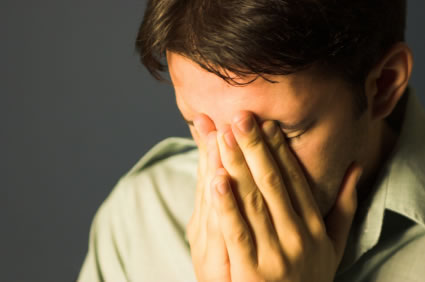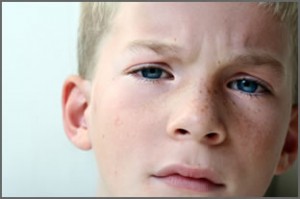The risk of developing depression, which is significantly increased by exposure to chronic stress, is influenced by both environment and genetics. The interplay of these two factors is quite complex, but in fact, there is even a third factor that most of us know nothing about – epigenetics. Epigenetics is the science of changes in genetic expression that are not caused by actual changes in DNA sequencing. It is these mechanisms that have been the recent focus of intergenerational investigations into the transmission of stress vulnerability. [continue reading…]
Depression in Children
When it comes to rearing children, just about any parent will say that what works with one kid might not work with another. Parents use all sorts of strategies to keep kids from being cranky, grumpy, fearful or moody, while encouraging them to be independent and well-adjusted.
But which parenting styles work best with which kids? A study by University of Washington psychologists provides advice about tailoring parenting to children’s personalities.
At the end of the three-year study, the psychologists found that the right match between parenting styles and the child’s personality led to half as many depression and anxiety symptoms in school-aged children. But mismatches led to twice as many depression and anxiety symptoms during the same three years.
The study was published online Aug. 1 in the Journal of Abnormal Child Psychology. [continue reading…]
Research shows that about one in 10 children and adolescents suffer from an anxiety disorder. Further, about five to eight percent suffer from depression. Both these relatively common psychological disturbances have serious long term consequences for children and adolescents if left untreated.
While many parents seek help for their children, research has shown that not all of these children will receive competently administered treatment that is based on the latest research findings and clinical advances in the field. Unfortunately for parents, there is no way to know whether their therapist’s practice meets worldwide standards.
To address this problem, researchers Elizabeth Sburlati, Carolyn Schniering, Heidi Lyneham and Ronald Rapee from the University’s Centre for Emotional Health have now turned their attention to developing a standardised model of therapist competencies for treating children and adolescents with anxiety and depressive disorders.The researcher’s findings have recently been published online in the international journal Clinical Child and Family Psychology Review. [continue reading…]
Almost 15 percent of preschoolers have atypically high levels of depression and anxiety, according to a new study published in The Journal of Child Psychology and Psychiatry. The five-year investigation also found that children with atypically high depression and anxiety levels are more likely to have mothers with a history of depression.
The study was conducted in Canada by an international team of researchers from the Université de Montréal, the Université Laval and McGill University, as well as Inserm (Institut national de la santé et de la recherche médicale) in France, Carnegie Mellon University in the U.S. and University College Dublin in Ireland. [continue reading…]


